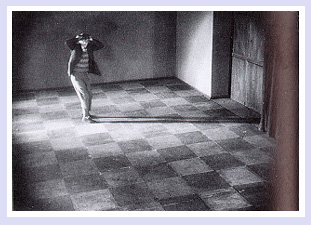Stanford Encyclopedia of Philosophy
on the origins of Pragmatism:
"Pragmatism had been born in the discussions at
a ‘metaphysical club’ in Harvard around 1870
(see Menand…*). Peirce and James participated
in these discussions along with some other philosophers
and philosophically inclined lawyers. As we have
already noted, Peirce developed these ideas in his
publications from the 1870s."
|
From "How to Make Our Ideas Clear," "The very first lesson that we have a right to demand that logic shall teach us is, how to make our ideas clear; and a most important one it is, depreciated only by minds who stand in need of it. To know what we think, to be masters of our own meaning, will make a solid foundation for great and weighty thought. It is most easily learned by those whose ideas are meagre and restricted; and far happier they than such as wallow helplessly in a rich mud of conceptions. A nation, it is true, may, in the course of generations, overcome the disadvantage of an excessive wealth of language and its natural concomitant, a vast, unfathomable deep of ideas. We may see it in history, slowly perfecting its literary forms, sloughing at length its metaphysics, and, by virtue of the untirable patience which is often a compensation, attaining great excellence in every branch of mental acquirement. The page of history is not yet unrolled which is to tell us whether such a people will or will not in the long-run prevail over one whose ideas (like the words of their language) are few, but which possesses a wonderful mastery over those which it has. For an individual, however, there can be no question that a few clear ideas are worth more than many confused ones. A young man would hardly be persuaded to sacrifice the greater part of his thoughts to save the rest; and the muddled head is the least apt to see the necessity of such a sacrifice. Him we can usually only commiserate, as a person with a congenital defect. Time will help him, but intellectual maturity with regard to clearness comes rather late, an unfortunate arrangement of Nature, inasmuch as clearness is of less use to a man settled in life, whose errors have in great measure had their effect, than it would be to one whose path lies before him. It is terrible to see how a single unclear idea, a single formula without meaning, lurking in a young man's head, will sometimes act like an obstruction of inert matter in an artery, hindering the nutrition of the brain, and condemning its victim to pine away in the fullness of his intellectual vigor and in the midst of intellectual plenty. Many a man has cherished for years as his hobby some vague shadow of an idea, too meaningless to be positively false; he has, nevertheless, passionately loved it, has made it his companion by day and by night, and has given to it his strength and his life, leaving all other occupations for its sake, and in short has lived with it and for it, until it has become, as it were, flesh of his flesh and bone of his bone; and then he has waked up some bright morning to find it gone, clean vanished away like the beautiful Melusina of the fable, and the essence of his life gone with it. I have myself known such a man; and who can tell how many histories of circle-squarers, metaphysicians, astrologers, and what not, may not be told in the old German story?" |
Peirce himself may or may not have been entirely successful
in making his ideas clear. See Where Credit Is Due (Log24,
June 11, 2016) and the Wikipedia article Categories (Peirce).
* Menand, L., 2001. The Metaphysical Club : A Story of
Ideas in America , New York: Farrar, Straus and Giroux











